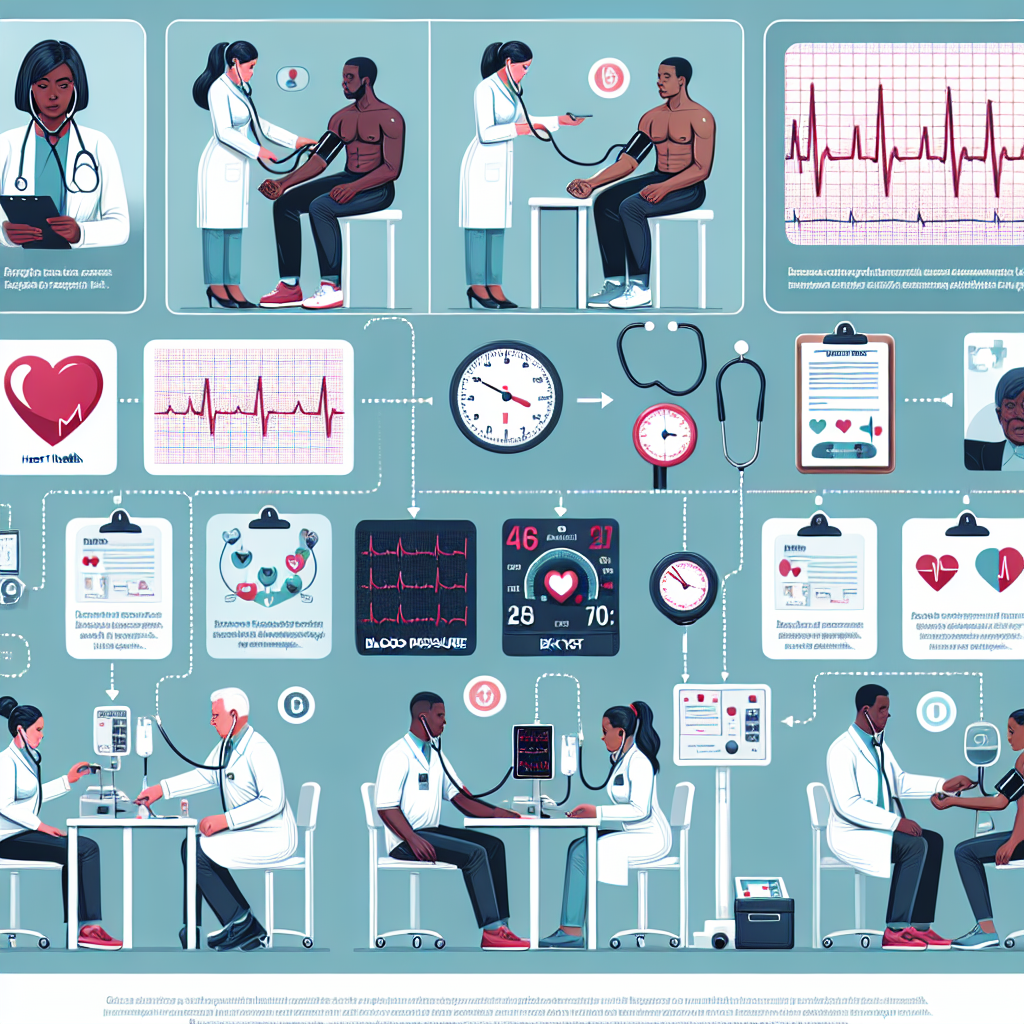Heart health is a crucial aspect of overall wellness, and regular check-ups are vital for maintaining a healthy cardiovascular system. Cardiovascular diseases remain a leading cause of death globally, which underscores the importance of proactive measures to detect and manage potential heart-related issues. This comprehensive guide will explore the significance of heart health check-ups, preventive strategies, and lifestyle modifications that can contribute to a robust and healthy heart.
Understanding the Heart Health Landscape
The heart is a remarkable organ responsible for pumping blood throughout the body, delivering oxygen and nutrients to tissues, and removing waste products. As we age, various factors such as genetics, lifestyle choices, and environmental conditions can affect heart health. Regular heart health check-ups can identify risk factors early, allowing for timely interventions that can prevent the onset or progression of heart disease.
For in-depth information on cardiovascular health, visit Avix Health’s Cardiovascular Health section.
Why Regular Heart Health Check-Ups Are Essential
Regular heart health check-ups with a healthcare provider are critical for several reasons:
Early Detection: Check-ups can reveal early signs of heart disease, even before symptoms arise. Early detection can lead to more effective treatment and a better prognosis.
Risk Assessment: Medical evaluations assess risk factors such as high blood pressure, high cholesterol, and diabetes. Understanding these risks can help tailor preventive strategies.
Monitoring: For those already diagnosed with heart conditions, check-ups are essential for monitoring the effectiveness of treatments and making necessary adjustments.
Components of a Heart Health Check-Up
A comprehensive heart health check-up may include:
- Blood Pressure Measurement: High blood pressure is a silent killer and a significant risk factor for heart disease.
- Electrocardiogram (EKG): This test records the electrical activity of the heart and can detect various heart conditions.
- Blood Tests: These can assess cholesterol levels and markers for inflammation, which are indicators of heart disease risk.
- Lifestyle Evaluation: Discussing diet, exercise, and habits like smoking or alcohol consumption provides insight into areas for improvement.
- Family History Review: Genetics play a role in heart health, and a family history of heart disease is a critical risk factor.
Preventive Strategies
Prevention is always better than cure, especially when it comes to heart health. Here are some strategies to consider:
- Maintain a Heart-Healthy Diet: Consuming a diet rich in fruits, vegetables, whole grains, lean proteins, and healthy fats is vital. Learn more about this by reading How to Maintain a Heart-Healthy Diet.
- Regular Physical Activity: Exercise strengthens the heart and improves blood circulation. The link between exercise and heart health is well-established, as detailed in Exercise and Cardiovascular Health: The Heart Connection.
- Avoid Tobacco and Limit Alcohol: Smoking and excessive alcohol consumption are significant risk factors for heart disease. For more information, visit the article on Smoking and Heart Disease: What You Need to Know.
Lifestyle Modifications for a Healthy Heart
Lifestyle changes can go a long way in supporting heart health:
- Weight Management: Maintaining a healthy weight helps reduce the strain on your heart and lowers the risk of heart disease.
- Stress Management: Chronic stress can negatively impact heart health. Techniques like meditation, yoga, and regular exercise can help manage stress.
- Sleep Hygiene: Adequate sleep is essential for heart health. Poor sleep patterns have been linked to an increased risk of heart disease.
For more nuanced resources on managing stress and its impact on the heart, consider exploring niche publications like The American Institute of Stress.
The Role of Technology in Heart Health
Advancements in technology now allow for more sophisticated heart health monitoring. Wearable devices can track heart rate, and mobile applications can remind patients to take medication or follow their exercise routines. For those interested in technological aids for heart health, the article on Innovative Skin Care Devices for At-Home Use discusses the crossover between skin health technology and its potential applications in monitoring cardiovascular wellness.
The Future of Heart Health Check-Ups
The future of heart health is promising with the integration of personalized medicine and predictive analytics. Genetic testing and AI-driven tools can offer more personalized risk assessments and treatment plans.
For further reading on the evolving landscape of personalized health care, consider specialized resources from institutions like The Personalized Medicine Coalition.
Conclusion
Regular heart health check-ups are a cornerstone of preventive health care. They offer a window into your cardiovascular system, allowing you to take proactive measures to maintain or improve your heart health. By combining these check-ups with a heart-healthy lifestyle, leveraging technology, and staying informed about the latest developments in heart care, you can significantly reduce your risk of heart disease and lead a longer, healthier life.
Remember, the journey to a healthy heart is continuous and requires commitment. Stay informed, stay proactive, and most importantly, listen to your heart—it might just save your life.



